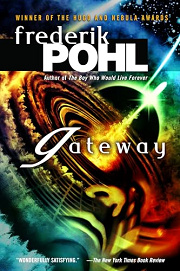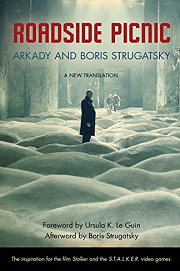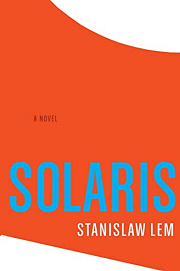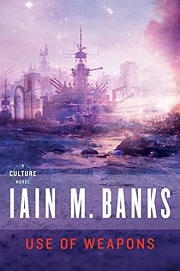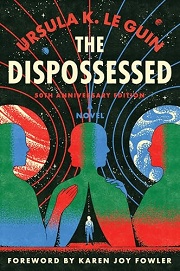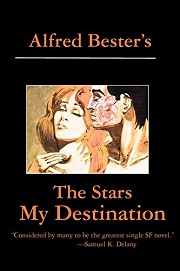Share your thoughts in a quick Shelf Talk!
Gateway by Frederik Pohl
On a hollowed asteroid called Gateway, humanity gambles with alien ships that launch to unknown destinations—and uncertain fates. Gateway is a tense, character-driven classic about risk, reward, and the price we pay for the chance to touch the stars.
Have you read this book? Share what you liked (or didn’t), and we’ll use your answers to recommend your next favorite read!
Love Gateway but not sure what to read next?
These picks are popular with readers who enjoyed this book. Complete a quick Shelf Talk to get recommendations made just for you! Warning: possible spoilers for Gateway below.
In Gateway, did you enjoy ...
... risking deadly runs into alien-built hazard zones for mysterious tech and a jackpot?
Roadside Picnic by Arkady and Boris Strugatsky
If the prospecting runs from Gateway—taking preprogrammed Heechee ships to god-knows-where for a life-changing score—hooked you, you'll love the stalkers sneaking into the Zone in Roadside Picnic. Like Robinette betting everything on a ship slot and praying the payout covers the terror, Redrick Schuhart risks the "Meat Grinder," dodges lethal anomalies, and drags out baffling artifacts that nobody fully understands. The mix of payday desperation, unknowable alien leftovers, and moral compromise echoes the Gateway bonus system, the claustrophobic tunnels, and the terrible cost of one "successful" mission.
... a claustrophobic, guilt-driven psychological unraveling under the pressure of the unknown?
Solaris by Stanislaw Lem
If what stayed with you was Robinette Broadhead’s sessions with Sigfrid—the shame, evasion, and slowly confessed truth about leaving his crewmates—then Solaris will hit the same nerve. Psychologist Kris Kelvin arrives at a station above a living ocean that reads minds and manifests his buried guilt as a woman he can’t escape. Like Broadhead’s therapy-framed narrative, Kelvin’s isolated confrontations force him to face what he’s done and what he wants, all while an alien intelligence remains as unreadable as the Heechee. It’s intimate, unsettling, and relentlessly introspective.
... an interleaved present–past structure that withholds the awful truth until the final chapters?
Use Of Weapons by Iain Banks
If you liked how Gateway braided Bob’s present-day talks with Sigfrid through flashbacks to Gateway life—only to land a gut-punch revelation about that fateful mission—Use of Weapons takes that structure and sharpens it. Two timelines unwind in opposite directions, each vignette recontextualizing the last, until the final reveal reframes the protagonist’s entire history. The same slow peel of secrets, the same dawning horror about what a choice really cost others—this is that narrative machinery pushed to a bravura extreme.
... sharp, humane critique of who profits from risk and scarcity in spacefaring societies?
The Dispossessed by Ursula K. Le Guin
If what gripped you was the Gateway Corporation’s lottery economics—paying scrip, trapping prospectors in debt, dangling bonuses for deadly missions—then The Dispossessed offers the incisive social SF counterpart. As Shevek moves between an anarchist moon and a wealthy planet, Le Guin probes ownership, labor, and scientific freedom with the same sociological bite Pohl brings to food queues, apartment lotteries, and contract clauses on Gateway. It’s less about tech specs and more about systems and the people surviving inside them.
... a flawed, often selfish protagonist whose drive leads to both triumph and collateral damage?
The Stars My Destination by Alfred Bester
If Robinette’s mix of fear, selfish choices, and lingering guilt—as when he punches the escape and consigns his crewmates to a horrific fate—fascinated you, meet Gully Foyle. In The Stars My Destination, Foyle’s obsession-fueled rampage through high society, prisons, and corporate intrigue leaves wreckage and revelations in its wake. Like Bob, he’s not noble; he’s human, volatile, and captivating, and the novel’s pyrotechnic ideas and breakneck twists scratch the same itch as Gateway’s shocking confessions and big, dangerous tech.
Unlock your personalized book recommendations! Just take a quick Shelf Talk for Gateway by Frederik Pohl. It’s only a few questions and takes less than a minute.
